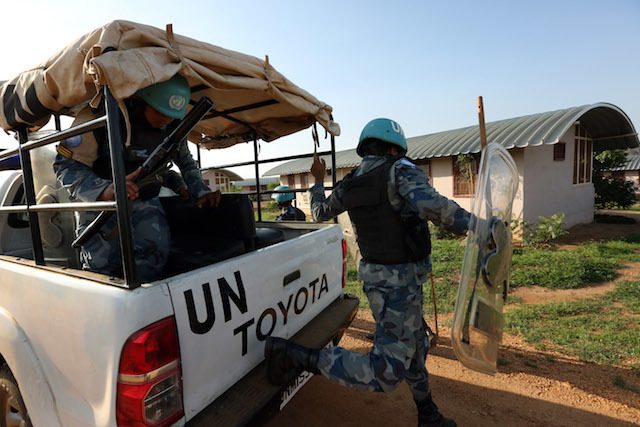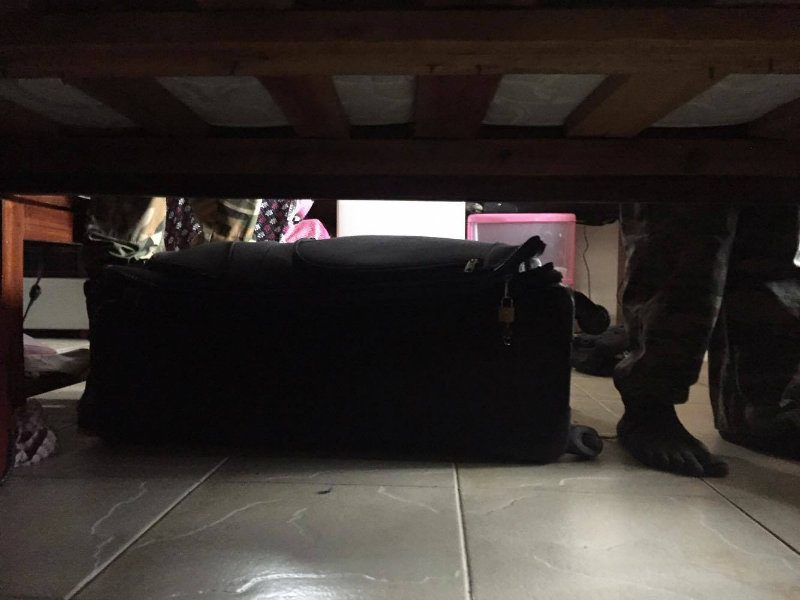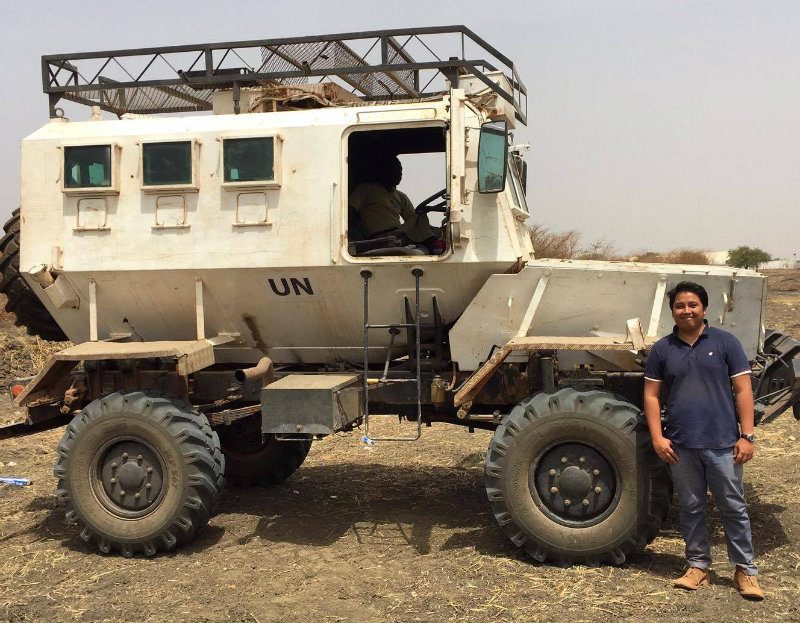SUMMARY
This is AI generated summarization, which may have errors. For context, always refer to the full article.

MANILA, Philippines – It was the longest 4 hours of his life.
On July 11, Giano Libot, a Filipino humanitarian worker based in South Sudan, was on the receiving end of the attack by South Sudanese soldiers.
Coming on the heels of their victory over opposition forces on that day, the South Sudanese troops went on a nearly 4-hour rampage at the Hotel Terrain, a “safe house” where Libot and other aid workers were staying. The attack, it seemed, was the soldiers’ way of celebrating.
Groups have tagged the incident as one of the worst targeted attacks on aid workers in South Sudan’s 3-year civil war, which started in December 2013, following rumors that Vice President Riek Machar was attempting a coup.
In a phone interview with Rappler, Libot said that the attack started around 4 pm, at a time when they thought they were safe from the ongoing fight in Juba, South Sudan’s capital.
“Armed men stormed the place we called home. They broke open the gates, and proceeded [with] what would best be described as a trail of destruction,” Libot said.
The aid workers attempted to contact the nearby United Nations base for rescue before the soldiers broke into the house. Their desperate calls for help – channeled through messages, emails, and even Facebook – were reportedly ignored, however.
Under the bed
Libot hid under a bed with the view of the assailants’ feet.
“It was then at this point that I spent two long horrific hours of just seeing the feet of our assailants as they finally broke in the safe house and started harassing, shouting [at], and threatening everyone they saw inside,” Libot said.
He was eventually discovered as soldiers started looking underneath the bed for more items to loot. A rifle immediately greeted him. He knew too well that if he resisted, he was going to die.

“I crawled out as fast as I could and just surrendered, I was immediately greeted by a strong whack from the soldiers rifle,” Libot said.
They asked if he wanted to die. He said no. Libot negotiated with the soldiers and told them he could look for more items he could give them.
According to the Filipino aid worker, one of the troops ranted against foreigners and declared hatred against the United States. Libot said soldiers were shouting: “You messed up this country. You’re helping the rebels. The people in the UN, they’re helping the rebels.”
The troops continued firing recklessly, shouting, and assaulting the aid workers and the safe house staff.
Gunshots
“After getting some items for the soldiers inside the room, I found myself in the hallway of the safe house, where I rejoined a few more colleagues. The harassment continued, as we were instructed to kneel while some of the soldiers fiercely kept banging on the remaining locked doors,” Libot recounted.
At 6 pm, despite South Sudan’s President Salva Kiir declaration of a ceasefire, the soldiers forced the foreigners to stand in a semi-circle.
John Gatluak was pulled out from the group. Gatluak is a South Sudanese journalist who worked for Internews, a media development organization funded by USAID. The scars on his forehead marked him as a member of the Nuer tribe, the same tribe as opposition leader Riek Machar.
Even as he was slumped on the ground, soldiers continued to shoot at him.
Referring to Gatluak’s death, Libot said: “I witnessed the massacre of a colleague…. It was in many ways [part of] genocide, crime of ethnic hatred.”
How they survived
At past 7 pm South Sudanese security forces finally reached the place and rescued all but 3 Western women – who were reportedly raped – and around 16 other Hotel Terrain staff members.
According to reports, it was only the next morning that a private security firm rescued them.
Human Rights Watch said, “The peacekeepers did not venture out of the bases to protect civilians under imminent threat even after the ceasefire.”
UN Secretary General Ban-Ki Moon said in a statement that they had launched an independent special investigation “to determine the circumstances surrounding these incidents and to evaluate the UN Mission’s overall response.”
“During the fighting throughout the city, the US embassy in South Sudan responded to distress calls from the compound and urgently contacted South Sudanese government officials, who sent a response force to the site to stop the attack,” said Samantha Power, US Ambassador to the United Nations.
Power also expressed their concern that “United Nations peacekeepers were apparently either incapable of or unwilling to respond to calls for help.”
Recover and return
More than a month since the attack, Libot still struggles to retell their story.
“I hope to not retell the tale, but I also know that, surviving the ordeal, I have a moral obligation to honor the death of our colleague John,” Libot said.
He is back in the Philippines.

Libot worked in South Sudan for more than a year. In his line of work, he focused on the field of humanitarian accountability, which looks at whether humanitarian programs conform to international community standards.
He was swayed into humanitarian work by chance.
“I initially worked with an UN-type organization in the field of disaster response. It was just a desire to help in whatever way. I started during the Bohol earthquake, where I was a staff and helped out in many different capacities,” Libot said.
After giving himself time to recover from his South Sudan experience, he plans to return to humanitarian work. He said the harrowing ordeal, no matter how horrific, did not quell his passion to actively make small ripples of change. The fire is still burning, he added.
“I don’t have misplaced expectations about what we do. We try to help and I know that no matter how hard we work we can’t change everything. The thing that keeps me going though is just this simple conviction that at least with whatever effort we can give, we make what is a horrible situation at least become manageable,” Libot said. – Rappler.com
Giano Libot is a Mover and was an intern at Rappler.
Add a comment
How does this make you feel?
There are no comments yet. Add your comment to start the conversation.